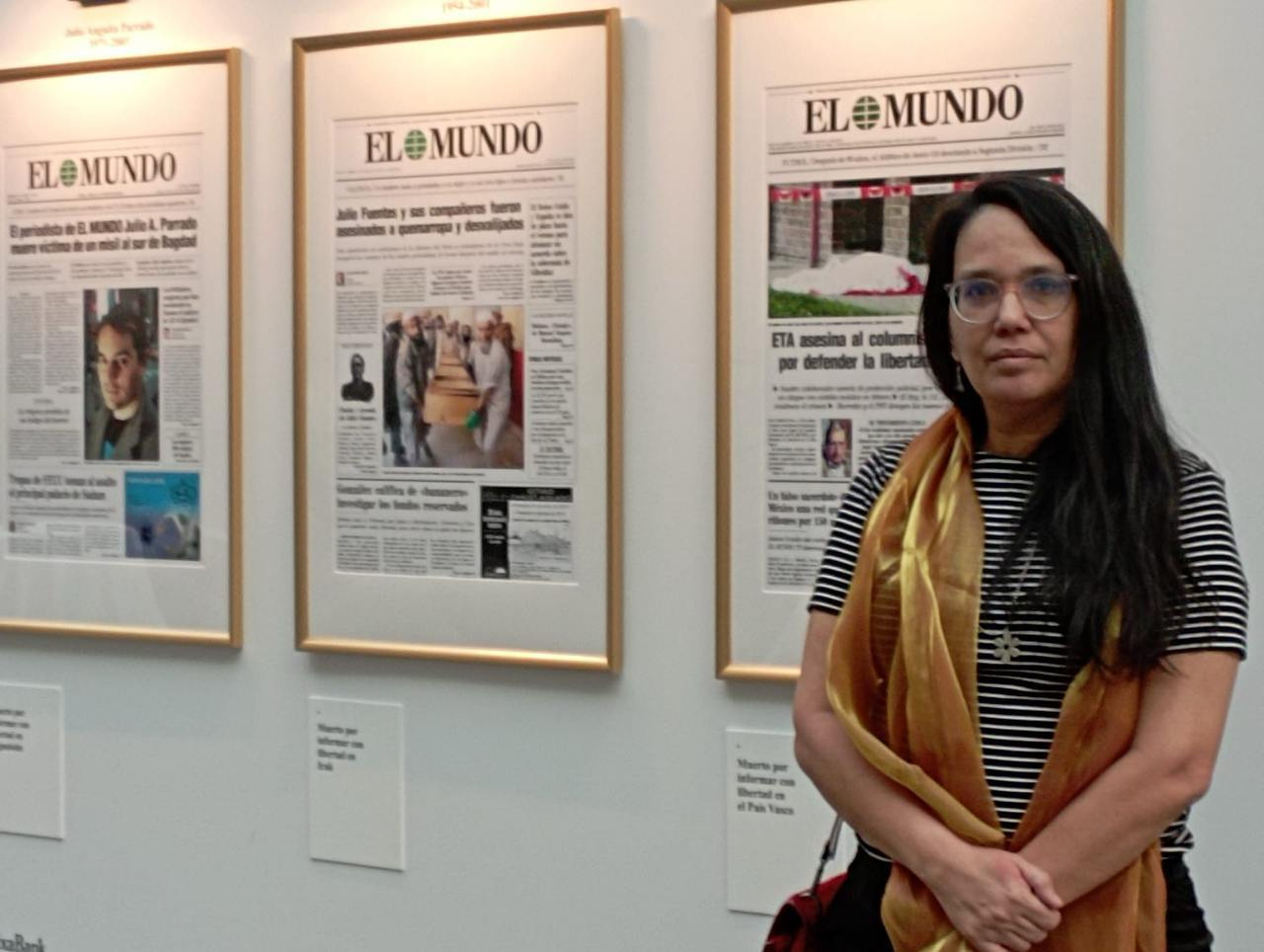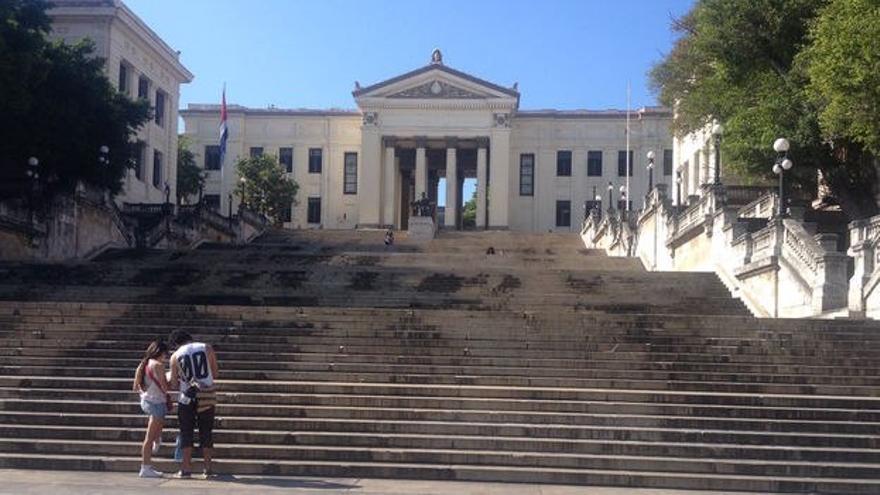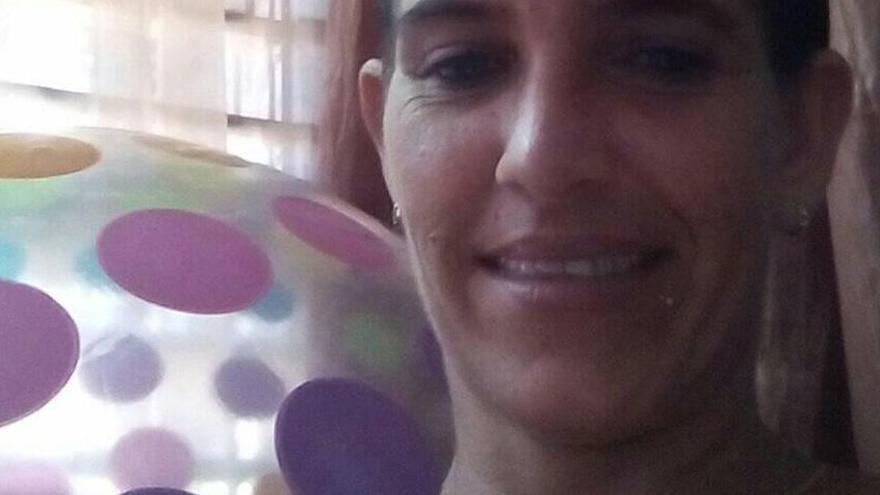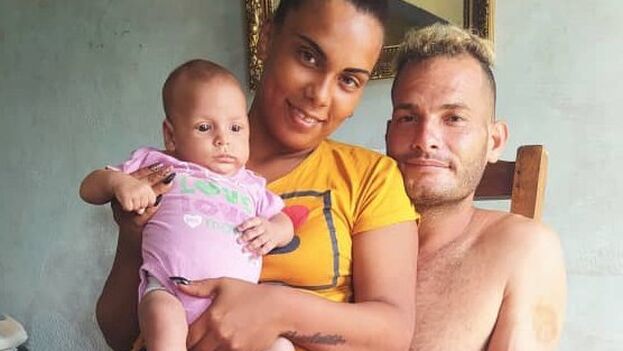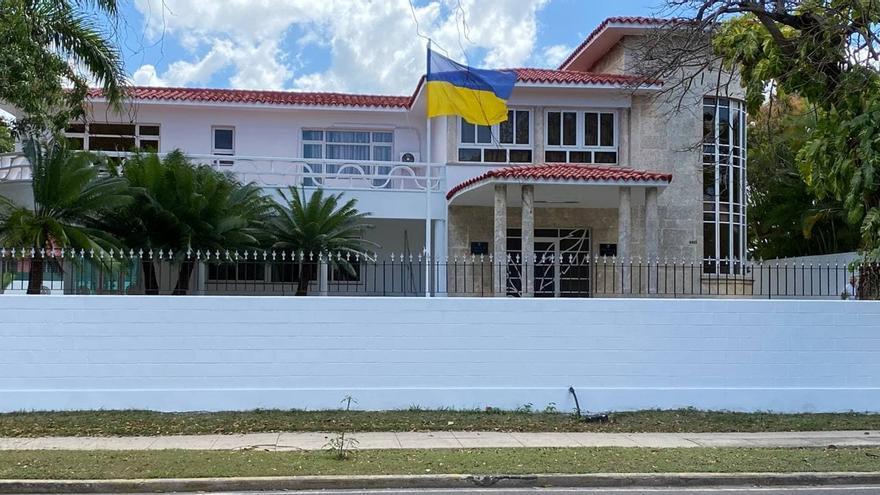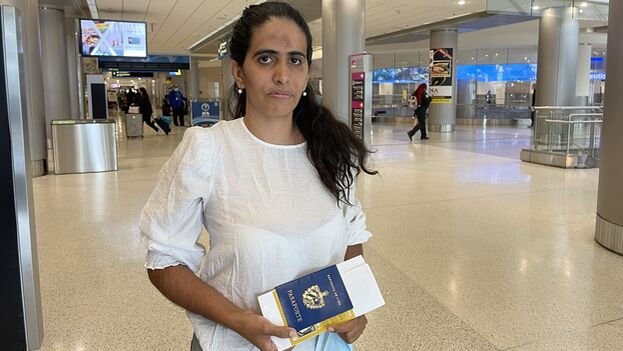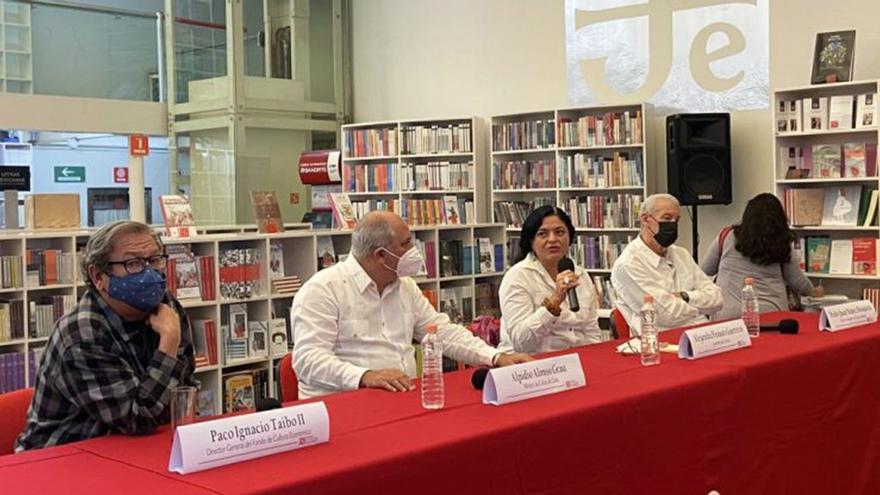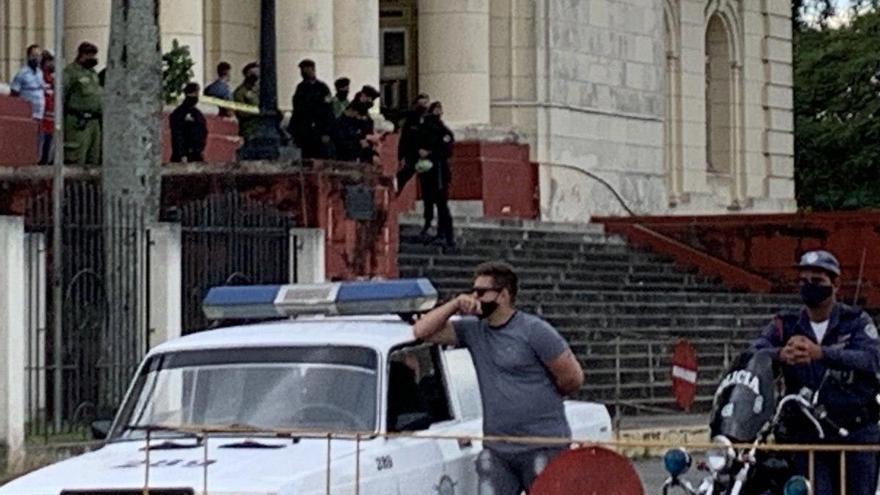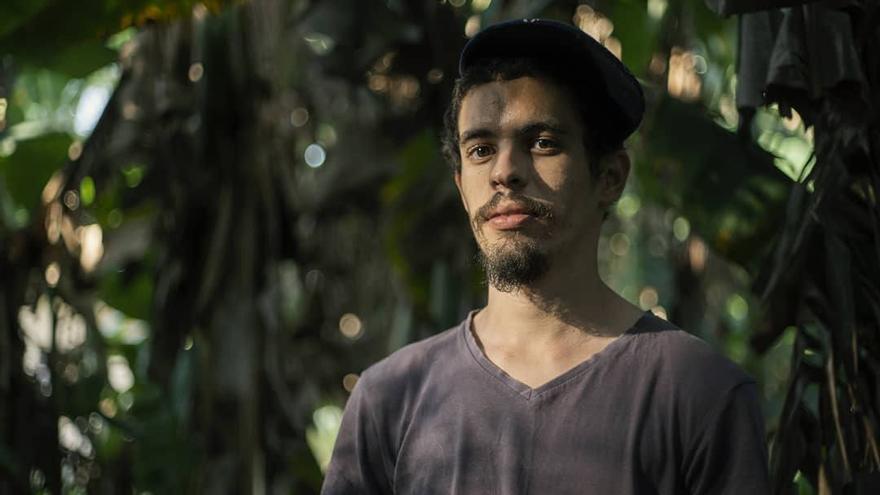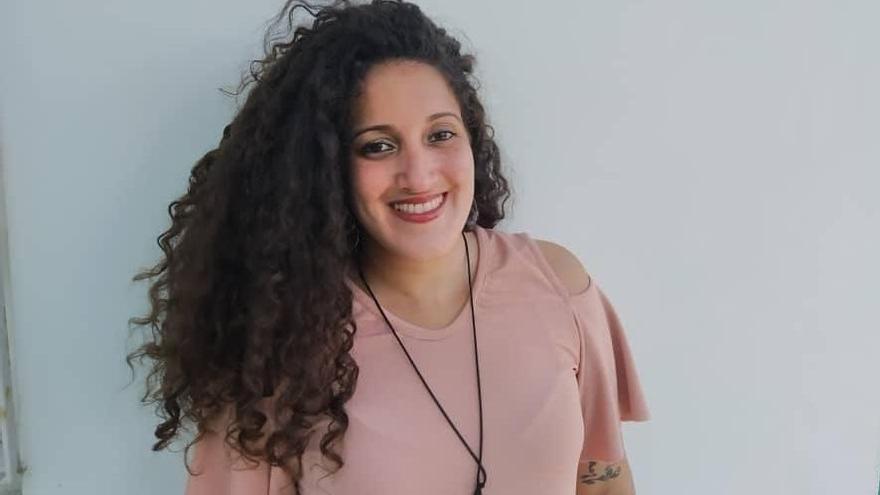“My life is in danger in Cuba,” says Eliexer Márquez “El Funky”

![]() 14ymedio, Luz Escobar / Yaiza Santos, Madrid, May 9, 2025 (delayed translation) — Eliexer Márquez “El Funky,” one of the authors of Patria y Vida, the anthem of the 11 July 2021 protests, winner of two Grammy Awards, persecuted in Cuba for his dissenting songs, and exiled in the United States for three and a half years, has a deportation order. He announced it himself on Thursday, with three lines posted on his Facebook wall.
14ymedio, Luz Escobar / Yaiza Santos, Madrid, May 9, 2025 (delayed translation) — Eliexer Márquez “El Funky,” one of the authors of Patria y Vida, the anthem of the 11 July 2021 protests, winner of two Grammy Awards, persecuted in Cuba for his dissenting songs, and exiled in the United States for three and a half years, has a deportation order. He announced it himself on Thursday, with three lines posted on his Facebook wall.
“I have 30 days to leave the country or I will be deported,” the rapper wrote, while asking for support “from all my Cuban brothers and sisters who know about my anti-communist history and from the members of Congress of this country.” As he explained to 14ymedio by phone, the US denied him residency due to the one-year-and-three-month prison sentence he served on the island for marijuana possession more than eight years ago.
He never concealed this background from the US authorities, and they requested more details about it while he was processing his permanent residency under the Cuban Adjustment Act. This, he admits, was a mistake. “I should have requested political asylum upon arrival, but I trusted the lawyer they assigned me,” says El Funky about the lawyer recommended to him by his colleague and co-author of Patria y Vida, Yotuel Romero. The man was a professional with a track record, he says, but he always disagreed with him. continue reading
“I always told him: Brother, my case is for political asylum, but he insisted on the Adjustment Act.”
“I always told him: Brother, my case is for political asylum, but he insisted on the Adjustment Act.” The lawyer’s decision was not without logic. Since its passage in 1996, this law has been the fastest way for Cubans to obtain permanent residency in the United States—between 10 and 35 months, compared to the several years it can take to be granted asylum. With an added advantage: it allows individuals to return to Cuba, something that is prohibited for political asylum seekers, under penalty of losing their status and, therefore, their residency.
But traveling to the island isn’t something El Funky can contemplate. “It would be suicide to return; my life is worthless in Cuba. Everyone who knows my career knows that,” says the musician, who arrived in the United States in November 2021 with a special invitation to the Latin Grammy Awards, where Patria y Vida was crowned Best Song of the Year and Best Urban Song .
“There were two six-month visas, one for me and one for Maykel. They didn’t let Maykel out, but they did let me out,” he says, referring to his friend Maykel Castillo Osorbo, who at that time had already been in prison for six months and who would end up being sentenced to nine years in prison, a sentence he is still serving in Pinar del Río.
“My departure was practically an exile; those people took me to the airport.”
El Funky continues, alluding to State Security: “My departure was practically an exile; those people took me to the airport.” With threats disguised as congratulations: “Have a good trip, but don’t come back just yet. You know we can make content for you that you can live with for up to 20 years.”
After Patria y Vida was released in February 2021 and immediately became a social phenomenon, the regime’s siege against El Funky and Osorbo, the authors who lived on the island – and also Luis Manuel Otero Alcántara, leader of the San Isidro Movement, who also appeared in the video clip – intensified. El Funky, in particular, was arrested on several occasions, and on one of them, precautionary measures were imposed on him to restrict his freedom of movement .
For all these reasons, he sees the regime’s hand in denying his residency: “I’m absolutely sure.” The reason he gives is that the criminal record that arrived from the island, with the sentence completed in 2017, no longer stated “possession” but rather “drug trafficking.” The sentence, El Funky points out, “makes it very clear: it was for half a marijuana cigarette. I served one year and three months, and trafficking in Cuba is punishable by five to ten years. You realize that a crime was fabricated there, especially in a case like mine.”
The rapper asserts that this was also fabricated. “In 2016, I was already making protest music with Maykel,” he recalls. “Maykel had already been imprisoned because he had made a song against Fidel [Por ti, señor]. In the sentence, you can read the neighbors’ opinions: my good behavior, that I wasn’t a criminal, that I’d never had any problems in the neighborhood, but nothing. They had to come up with a way to find me out of line.”
He trusts that his new lawyer can resolve his case so he won’t be deported.
He understands, of course, that the United States, based on his drug convictions, treats him “like a criminal,” but he trusts his new lawyer can resolve his case so he won’t be deported. “They’re taking away a case I served in Cuba, and it’s known that that dictatorship expelled me for all my actions and activism. You have to realize that this is something fabricated by the dictatorship,” he insists. “My life is in danger in Cuba.”
The artist claims he never delayed completing any immigration procedures in the United States to update his status. “Since I arrived, I started working with that lawyer, but everything kept getting delayed.” That same year, he says, they conducted the interview and began asking for more documents.
He also details his life in Miami, more as Eliexer Márquez than El Funky, working as a maintenance man at an elementary school ten minutes from his home. “I’m the head of a family, married to an American citizen who has a daughter. I have a work permit, social security, a driver’s license, all my papers are up to date, none of them expired. I have no criminal record here, I’ve never committed a single offense, not a traffic violation or anything, I’m clean. In fact, for my job at the school, with children, which is extremely sensitive, they had to conduct an in-depth investigation to find out who I was.”
Caught between a dictatorship that would immediately imprison him and a legalistic society more xenophobic than ever, Márquez’s case is reminiscent of the “scum of the earth” of 1940s Europe, as defined by Arthur Koestler: persecuted in Germany as Jews and in France for lacking a job. Far removed from music or the stage, however, his lyrics in Patria y Vida continue to resonate: “You are no longer necessary, you have nothing left, you are already going down, the people are tired of enduring, we are waiting for a new dawn.”
____________
COLLABORATE WITH OUR WORK: The 14ymedio team is committed to practicing serious journalism that reflects Cuba’s reality in all its depth. Thank you for joining us on this long journey. We invite you to continue supporting us by becoming a member of 14ymedio now. Together we can continue transforming journalism in Cuba.




